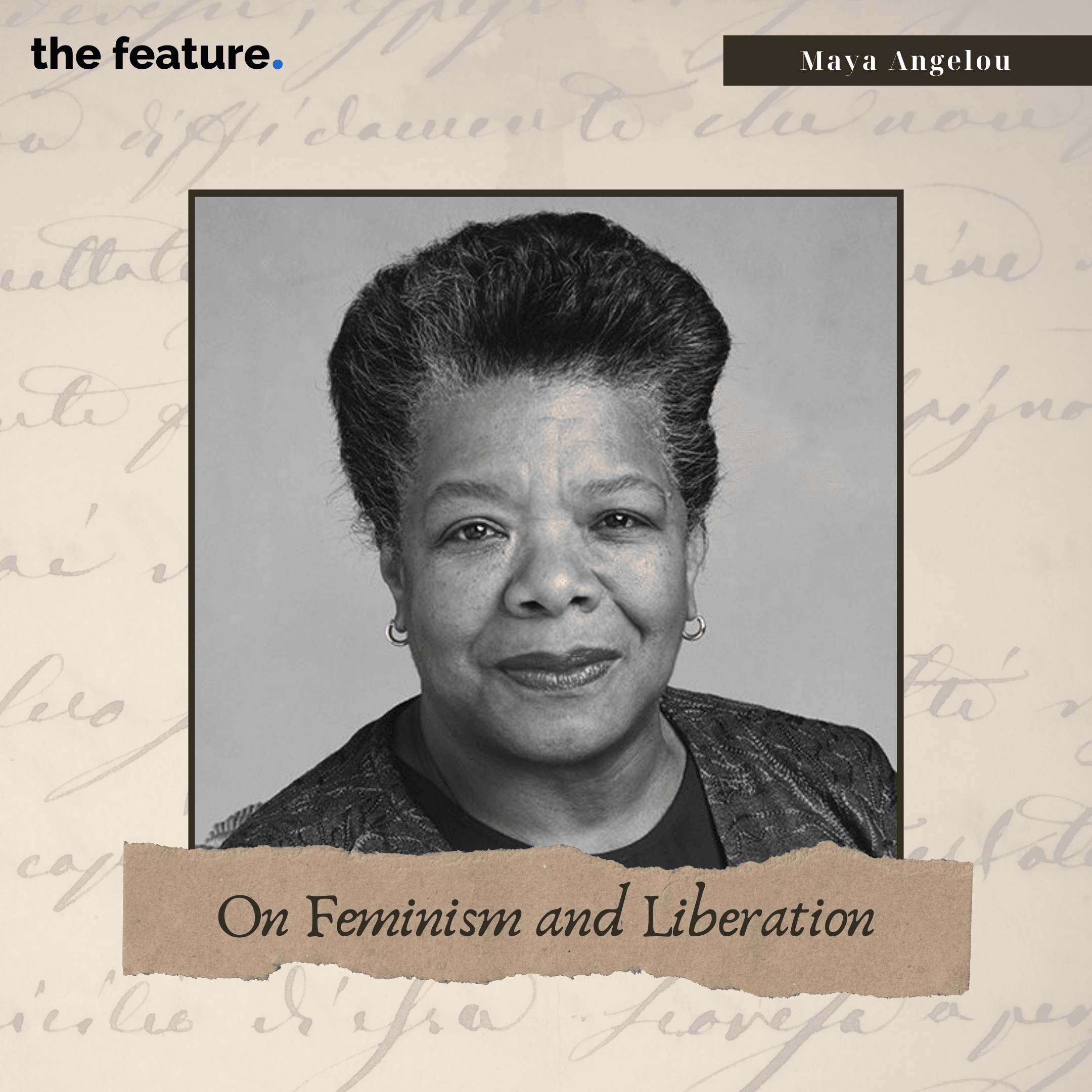“Through her poetry, Angelou personifies the suffering of Black Americans while also reciprocating the optimistic thoughts of those who are resilient in the face of adversity.”

In the wake of sensational feminist movements in the late 20th and early 21st century, Maya Angelou’s poetry and autobiographical texts serve as hallmarks of feminist literature. Angelou’s poetry is celebrated for its nuanced exploration of sensitive themes such as racism, sexism, female subjugation, identity, and the suffering of Black Americans amidst the Civil War and the years following it. In addition to her unwavering vocalization for female recognition, Angelou advocated for social justice and civil rights of Black Americans by working alongside Martin Luther King Jr. and Malcolm X during the 1960s.
Her debut autobiography I Know Why the Caged Birds Sing delves into themes of racial segregation, childhood trauma and abandonment, self-discovery, and the transformative power of knowledge and education to name a few. Through her poetry, Angelou personifies the suffering of Black Americans while also reciprocating the optimistic thoughts of those who are resilient in the face of adversity
She embraces the phenomenal attributes of femininity by writing “I’m a woman Phenomenally. Phenomenal woman. That’s me.” With the same vigor, the author associates the marginalized Black people with “Caged birds” and becomes a spokesperson for their suffrage and dehumanization. Thus, it is not only the universality of ideas that makes Angelou’s works enjoyable but also the everlasting outpour of emotions and connection that makes them an admirable part of literature.




